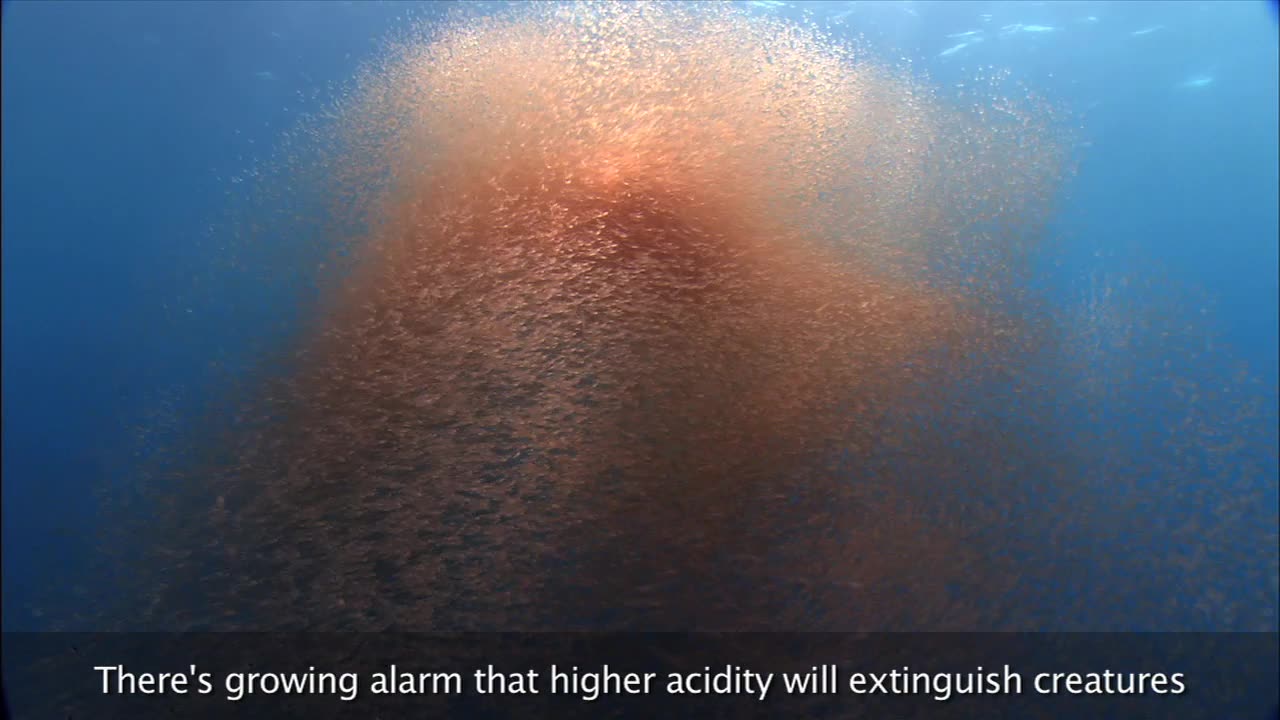Premium Only Content

The Acid Test(Ocean Today)
The Acid Test(Ocean Today)
Sigourney Weaver:
Scientists refer to ocean acidification as the other carbon problem. The first, of course, is global warming.
Lisa Suatoni:
People have heard about global warming for decades, but it's only over the past five years that experts really understood that the carbon dioxide is causing a problem for the oceans as well.
Ken Caldeira:
When we burn coal, oil, and gas, we introduce carbon dioxide into the atmosphere, but the atmosphere touches the ocean over 70 percent of Earth's surface, so this carbon dioxide we're putting into the atmosphere we are also putting into the ocean.
Sigourney Weaver:
What happens when so much carbon dioxide, 22 millions tons of it each day, mixes with ocean water? In terms of chemistry, the answer is simple: it becomes an acid.
Lisa Suatoni:
Since the industrial revolution, the ocean acidity has increased by 30 percent. If we continue to pollute as we are right now, the ocean acidity will double by the end of the century compared to pre-industrial times. That is a big problem.
Sigourney Weaver:
Thousands of ocean species build protective shells to survive. These organisms create their shells by drawing certain molecules from the water around them, but rising acidity depletes those molecules. And when acidity gets too high, shells dissolve.
O. Hoegh-Guldberg:
We know that coral reefs are particularly sensitive to ocean acidification, and the reason for that is that corals are unable to form their skeletons as quickly as they used to, and reefs are starting to crumble and disappear. We may lose those ecosystems within 20 or 30 years. And in those structures live an estimated million species.
Sigourney Weaver:
There's growing alarm that higher acidity will extinguish creatures that are a basic food source for fish. In many parts of the world, fish are a basic food source for people. The only way to stop acidification is to emit less carbon dioxide. But the ocean can better defend itself against rising acidity and temperature if its systems are healthy.
Lisa Suatoni:
That means restoring depleted fish populations, establishing marine protected areas all around the globe, and reducing pollution, particularly nutrient pollution, in the coastal zones.
Steve Palumbi:
Today, we're in a really remarkable history of the ocean. We know how to solve the local problems of marine ecosystem health. We know how to solve the global problem. The question is, will we?
-
 2:10:56
2:10:56
Inverted World Live
8 hours agoRobot Holocaust | Ep. 123
70.6K7 -
 3:22:33
3:22:33
Laura Loomer
7 hours agoEP149: Trump Frees the Hostages: Will HAMAS Respect the Ceasefire?
58.2K35 -
 1:02:02
1:02:02
The Nick DiPaolo Show Channel
7 hours agoTrump’s Success Rattling Lefties | The Nick Di Paolo Show #1804
30.2K26 -
 2:49:33
2:49:33
TimcastIRL
7 hours agoDemocrat Call On Liberals To 'FORCEFULLY RISE' Against Trump, DHS ATTACKED In Chicago | Timcast IRL
236K110 -
 2:50:07
2:50:07
Badlands Media
13 hours agoDEFCON ZERQ Ep. 013: Global Shifts, Spiritual Warfare, and the Return to Source
58.7K64 -
 6:21:11
6:21:11
SpartakusLIVE
9 hours agoLIVE from SUPER SECRET, VIP Location || BEACH FRONT into Verdansk
75.1K7 -
 1:20:01
1:20:01
Flyover Conservatives
1 day ago"The Testosterone Levels of a Baby Bird" - America’s Health Crisis w/ Dr. Troy Spurrill | FOC Show
46.6K1 -
 2:28:15
2:28:15
PandaSub2000
1 day agoSonic Racing CrossWorlds | ULTRA BESTIES & GAMES (Original Live Version)
29.4K1 -
 4:56:36
4:56:36
Drew Hernandez
11 hours agoDISGRACED SCOTUS REJECTS ALEX JONES' INFOWARS FREE SPEECH APPEAL
41.8K17 -
 3:58:57
3:58:57
GrimmHollywood
10 hours ago🔴LIVE • GRIMM'S TUESDAY FRIGHT NIGHT with LEEMIDA • LITTLE NIGHTMARES 3 • PART 1 •
16.8K